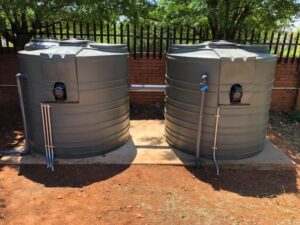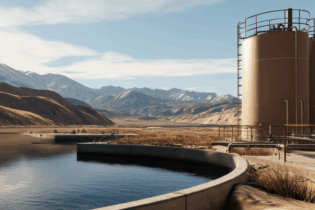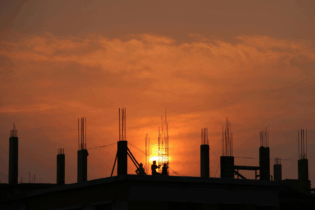Leon Du Casse, managing director of Bio Sewage Systems, used to own a plastic recycling company. His interest in water was piqued when dealing with wastewater created from washing plastic items to remove pollutants. Today, Du Casse is at the helm of Bio Sewage Systems, and is passionate about recycling water.
What inspired the creation of Bio Sewage Systems?
Bio Sewage Systems offers innovative sewage treatment solutions. Our initial focus was the construction of modular wastewater treatment package plants for remote sites, using readily accessible materials and products that did not have to be imported or sourced from special suppliers. These modular plants produce water suitable for irrigation standards and are typically free-standing, above-ground, roto-moulded tanks on a concrete base. System capacities range from 2 000 ℓ/day to 80 000 ℓ/day. From there, we started to build container plants, which could be loaded on a skip for transport or shipping. The container plants produce a higher quality of water. They are vandal-proof and have a substantially smaller footprint.How did the Bio Loo come about?
After interacting with some of our mining clients, we began to realise that chemical toilets in underground mines were posing a challenge. The maintenance of chemical toilets is essential to prevent malfunctions, leaks, and odours. However, accessing and servicing these toilets in the underground environment can be difficult, requiring specialised equipment and personnel. The disposal of waste from chemical toilets can also be problematic. It first needs to be transported to the surface (posing a further dilemma) and then needs to be either treated on-site or transported and treated at another facility. The buckets that carry this waste also need to be washed so they can be used again.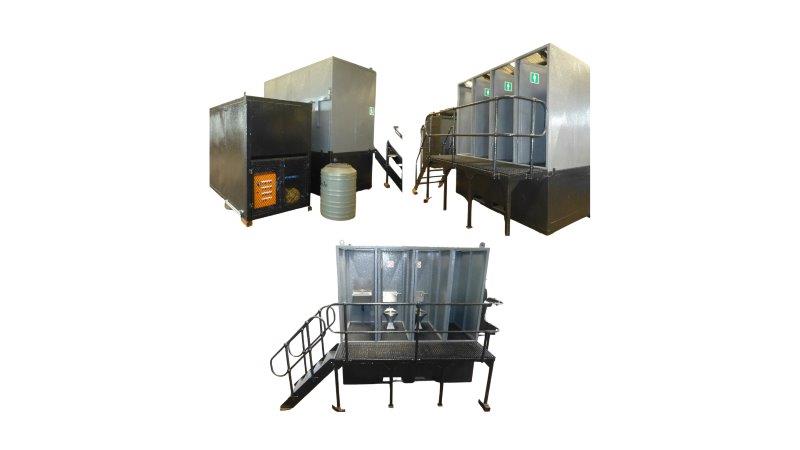
Why has the Bio Loo been a success?
Absolutely no chemicals are used. Natural processes treat the waste, resulting in water that meets stringent discharge limits suitable for aquatic life. The treated water can be used for non-potable applications such as dust suppression, irrigation, drilling, and toilet flushing. This reduces the need for fresh water and minimises the impact on the environment. There is no waste generation; everything is treated in a closed-loop system. The Bio Loo is both environmentally friendly and hygienic. Being modular, it is easy to install and compatible with existing infrastructure, making it easy to retrofit. We can also offer urinals, hand basins and even showers as part of the Bio Loo configuration, depending on our client’s needs. In addition to mining operations, the Bio Loo can be used in rural schools, building sites, informal settlements, and as temporary installations. The only prerequisite is that we need water to flush.
What about maintenance?
The Bio Loo can last indefinitely provided maintenance is carried out. It is extremely robust and all the sanitaryware is manufactured from stainless steel. However, one must remember that the Bio Loo cannot treat inorganic materials like cigarettes and sanitary pads, so we educate everyone who uses the Bio Loo and train an operator. That operator is taught how to look after the system and make any basic repairs if needed. We do not sell a product and then walk away. We want our products to live up to expectations and often enter into service level agreements with our customers.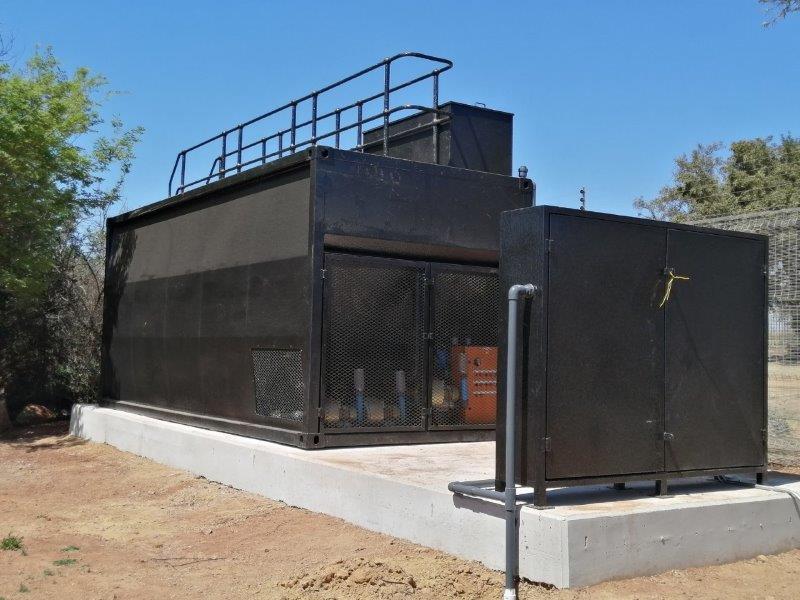
Are there any barriers regarding the uptake of this technology?
We are already selling the Bio Loo system and there is a growing interest. Although the SANS 30500 standard exists, none of this non-sewered sanitation (NSS) technology can be certified yet. This creates a situation where potential customers have difficulty in comparing products. I would advise clients to buy an NSS system from a company with a track record, references, and water test reports conducted in accredited laboratories.What other products and services does Bio Sewage Systems offer?
Our name can be misleading, as we offer various water treatment solutions. Most recently, we have been treating borehole water to potable standards without reverse osmosis through our own potable water plants. We also treat water that is used on mines for reuse (showers, washing of clothes).
Our systems include:
- Bio Sewage Systems – sewage water treatment (modular and containerised)
- Bio Pura – potable water (remove iron from water)
- Bio Loo – mobile integrated sewage treatment.


